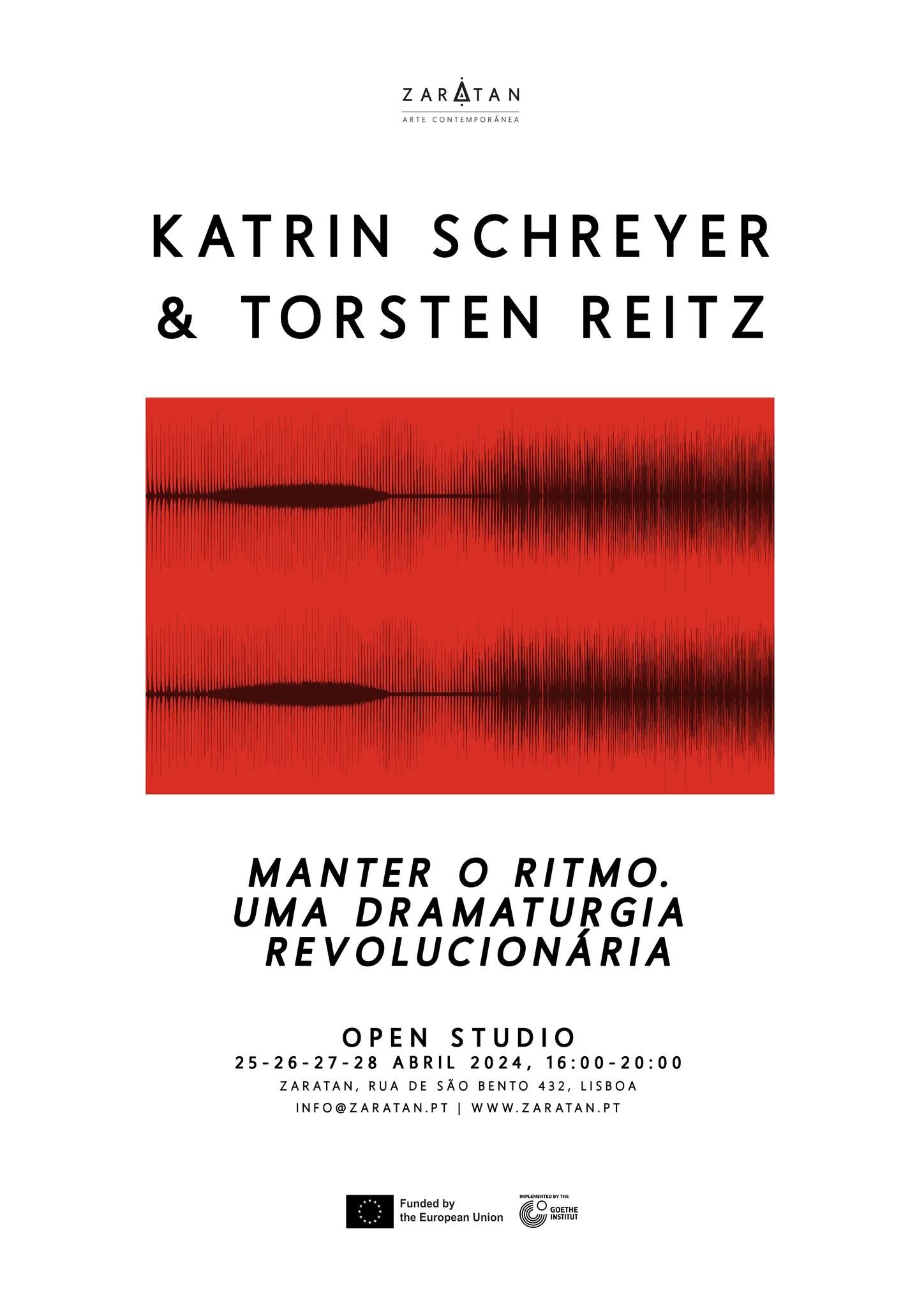KATRIN SCHREYER & TORSTEN REITZ «Manter o ritmo. Uma dramaturgia revolucionária»
25 Abril 2024 16h00

KATRIN SCHREYER & TORSTEN REITZ
«Manter o ritmo. Uma dramaturgia revolucionária»
«Manter o ritmo. Uma dramaturgia revolucionária»
Open studio | 25-26-27-28 April 2024, 16:00-20:00
Artist talk | 26 April 2024, 18:00
Free entry
Artist talk | 26 April 2024, 18:00
Free entry
On April 25 to 28, the residency’s space will be open to the public for the Open Studio of Katrin Schreyer & Torsten Reitz who will share the process and works made during their one-month stay in Lisbon.
Portugal, like East Germany, had many decades of dictatorship and in both countries the revolution was largely peaceful. During their residency at Zaratan, Katrin and Torsten focused on the Carnation Revolution and the subsequent transformation of society, with a view to linking this research to their own biographies. They were interested in how the democratization process took shape in Portugal, what cultural memory developed, what daily experiences people had and what mentalities were perpetuated.
Based on their sensitivity to historical ruptures, they carried out some artistic field research on this topic, and collected traces and fragments that overlap childhood memories of the GDA experience with impressions about the advent of democracy in Portugal.
These explorations resulted in two complementary presentation spaces at Zaratan: an installation/sound space and a documentation space, where the archive will continue to expand during the days of the exhibition.
Portugal, like East Germany, had many decades of dictatorship and in both countries the revolution was largely peaceful. During their residency at Zaratan, Katrin and Torsten focused on the Carnation Revolution and the subsequent transformation of society, with a view to linking this research to their own biographies. They were interested in how the democratization process took shape in Portugal, what cultural memory developed, what daily experiences people had and what mentalities were perpetuated.
Based on their sensitivity to historical ruptures, they carried out some artistic field research on this topic, and collected traces and fragments that overlap childhood memories of the GDA experience with impressions about the advent of democracy in Portugal.
These explorations resulted in two complementary presentation spaces at Zaratan: an installation/sound space and a documentation space, where the archive will continue to expand during the days of the exhibition.
Katrin Schreyer & Torsten Reitz ’s mobility is funded by the European Union into the Culture Moves Europe mobility action.
BIO: KATRIN SCHREYER and TORSTEN REITZ are two artist from Germany collaborating on a multimedia project and featuring an experimental attitude. They are interested in the discarded, the incidental, the hidden, the unnoticed. This gives rise to objects, stories, installations and images that draw attention to what seems to have fallen out of sight and consciousness. Where is the border between art and everyday life, between time and space, between the past and the present? They move along the edges and use what they find. During their stay at Zaratan, they are focusing on the Carnation Revolution and the subsequent transformation of society as well as link this process with their own East German biographies from the time of reunification.

